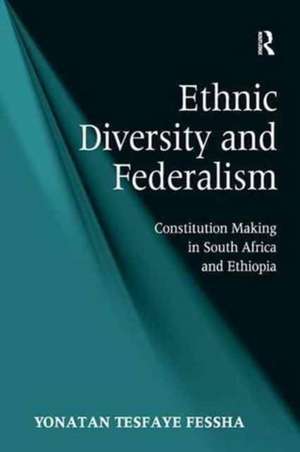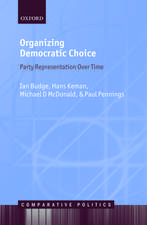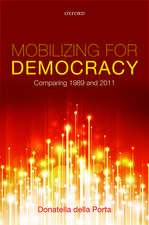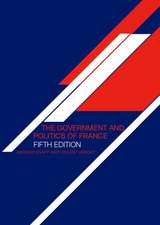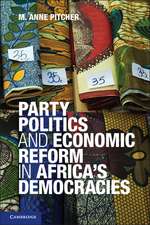Ethnic Diversity and Federalism: Constitution Making in South Africa and Ethiopia
Autor Yonatan Tesfaye Fesshaen Limba Engleză Paperback – 23 noi 2016
| Toate formatele și edițiile | Preț | Express |
|---|---|---|
| Paperback (1) | 469.34 lei 6-8 săpt. | |
| Taylor & Francis – 23 noi 2016 | 469.34 lei 6-8 săpt. | |
| Hardback (1) | 1054.71 lei 6-8 săpt. | |
| Taylor & Francis – 28 ian 2011 | 1054.71 lei 6-8 săpt. |
Preț: 469.34 lei
Nou
Puncte Express: 704
Preț estimativ în valută:
89.81€ • 94.00$ • 74.75£
89.81€ • 94.00$ • 74.75£
Carte tipărită la comandă
Livrare economică 01-15 aprilie
Preluare comenzi: 021 569.72.76
Specificații
ISBN-13: 9781138260689
ISBN-10: 1138260681
Pagini: 312
Dimensiuni: 156 x 234 mm
Greutate: 0.45 kg
Ediția:1
Editura: Taylor & Francis
Colecția Routledge
Locul publicării:Oxford, United Kingdom
ISBN-10: 1138260681
Pagini: 312
Dimensiuni: 156 x 234 mm
Greutate: 0.45 kg
Ediția:1
Editura: Taylor & Francis
Colecția Routledge
Locul publicării:Oxford, United Kingdom
Notă biografică
Dr. Fessha is a Senior Lecturer at the Faculty of Law, University of the Western Cape, South Africa. He has published widely on matters pertaining to but not limited to federalism, autonomy, politicised ethnicity, local government, constitutional interpretation and judicial review.
Recenzii
'This is an invaluable contribution to federalism literature for scholars and practitioners in existing and emerging federal states. It provides concrete lessons and approaches for multi-ethnic states to balance diversity and national unity. These lessons will have impact beyond the case studies in this book, now and in the future.' Robert F. Williams, Rutgers University School of Law, USA 'The increasingly burning question in law and politics in our globalized world of how to deal with multi-culturally composed populations, is addressed in this comparative study of two topical African examples where nation-building remains an unattainable ideal. The histories of both teach us how urgent innovative constitutional thinking has become.' Francois Venter, North-West University, South Africa 'This book will be of great interest to scholars, students and policy makers interested in which constitutional and institutional devices states can adopt in order to respond successfully to the claims formulated by its diverse ethnic groups... The book is well structured, using a clear and relevant framework to perform the case studies of South Africa and Ethiopia.' Afrika focus
Cuprins
Chapter 1 Introduction; Chapter 2 Towards the Recognition of Ethnic Diversity; Chapter 3 Federalism as Institutional Design to Recognize and Accommodate Ethnic Diversity; Chapter 4 Ethnicity in South Africa's Political and Constitutional Development; Chapter 5 Institutional Recognition and Accommodation of Ethnic Diversity in South Africa; Chapter 6 Ethnicity in Ethiopia's Political and Constitutional Development; Chapter 7 Marrying Federalism with Ethnicity: The Case of Ethiopia; Chapter 8 Conclusion and Lessons;
Descriere
The book examines how institutions of multi-ethnic states have been designed to accommodate ethnic diversity and maintain national unity. It locates institutional responses to the challenges of ethnic diversity within the context of a federal arrangement, examining how this has been used to reconcile the conflicting pressures of the demand for the recognition of distinctive identities, and the promotion of political and territorial integrity.
